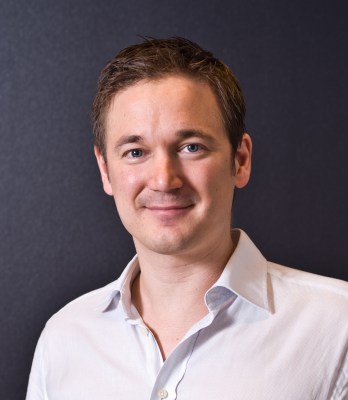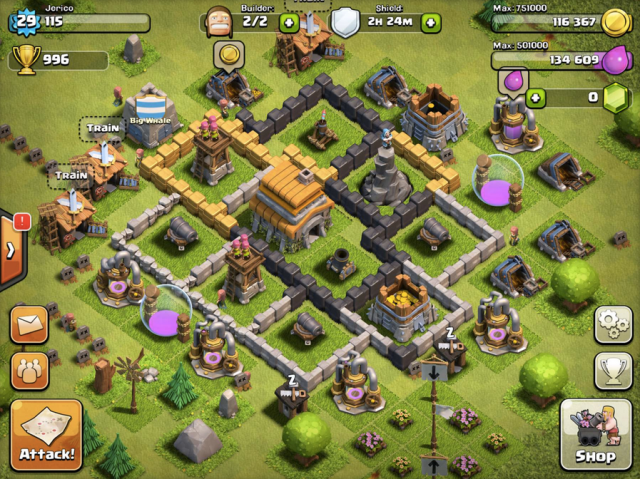“There was this moment in the industry when people thought that games were a science, not a form of art,” said Ilkka Paananen, the CEO of red-hot Finnish gaming startup Supercell.
“But inevitably, games are a form of art,” he said. “They have to be supported by strong analytics, but you have to lead with creativity.”
With Zynga’s moment passed, a new generation of gaming startups like Supercell and Kixeye are hoping to return the industry to a place with a bit more soul.
Even though Supercell started two years ago, the company didn’t have its first full-fledged launch until June with the release of farming game Hay Day, which was quickly followed up by Clash of Clans.
The two have been absolute beasts on the app store charts, holding the #1 and #2 slots on the iPad grossing lists this week in the U.S. Clash of Clans has been the #1 grossing iPad game in 77 countries for 42 of the last 90 days. In some bittersweet symbolism, Supercell recently changed offices and moved into an old Nokia research center that was abandoned after the venerable Finnish handset manufacturer downsized amid competition from iOS and Android.
The last time the company publicly disclosed revenues was last month, when it said it was making more than $500,000 a day before Apple’s 30 percent cut. That figure is likely 50 percent higher now and Paananen has been privately boasting of 70 percent operating profit margins, according to a source close to the company. Paananen shied away from updating those figures for this story.
Tablet revenues are now equal to smartphone revenues, he said.
“This is the best platform for developing games ever,” Paananen said. “There are amazing margins, and what’s super great is that when you come up with something good, it spreads like wildfire. You don’t need to spend money on user acquisition. It’s unbelievable.”
All of this success comes with great care though.
Hiring
Like many second or third-time entrepreneurs, Paananen has been extremely deliberate in how he’s crafted the culture of Supercell. He sold his first gaming company Sumea to Digital Chocolate eight years ago. After being leader behind Digital Chocolate’s efforts in Finland, Paananen picked up many lessons in what to do and what not to do in running gaming studios. He calls Digital Chocolate his “MBA” of gaming.
With Supercell, he’s first and foremost focused on picking up the very best talent. The average person at the company has been in gaming for more than a decade, and the company’s five founders have shipped 165 games for 12 different platforms. The caliber of the team convinced Accel to put in about $12 million even before the company launched its first product.
“When you set up a company, the only thing — the only thing — you should care about is getting the best people,” he said. “From that, good things will happen.”
Then he gives them the leeway to produce ideas in small teams of five people or so, which he calls “cells.” The broader company is the “Supercell.” Clash of Clans, the company’s highest performing game, was initially developed by five people.
He really focuses on not micro-managing and making sure every person in these cells takes individual responsibility for their work.
“I don’t need to tell them how to develop good games. They already know how,” he said.
Choosing Products
Supercell is selective about the products they’ve released. “This year, we’ve killed more products than we’ve launched,” he said. If something doesn’t feel right in a focus group or a game goes poorly in beta testing in Canada (which is a common testing ground for game developers), he’ll kill the project.
He’s also been careful in scaling up the company. It’s pretty common for gaming companies to hire rapidly once they have a hit. Another midcore mobile and social developer Kabam has more than 500 employees, while Zynga added roughly 1,000 people from the time it filed its S-1 to last month, when it initiated layoffs.
“You’ll often see a gaming studio get a hit, then they’ll start to grow as an astronomical rate. Then the next product they do has to be bigger in terms of the team, the headcount and the budget because they think they’re better,” Paananen said. “But this model has been proven wrong multiple times. This leads to companies being risk averse and copying what has already worked.”
He points out that Supercell’s guiding motto is, ‘Think Small, But Get Big,’
“Small is the new big,” he said. “We prize extreme independence and have a flat organization with little bureaucracy.”
Transparency
Paananen also has a companywide e-mail sent out every morning with all of the relevant stats on how many new users the company saw, total daily active usage, how much money players spent and how many people returned.
“Funnily enough, it makes my job easier,” he said. “I don’t need to think — what do I tell my people? Because they know it all anyway.”
The success of the last few months has meant that Supercell has received inbound interest from investors and acquirers alike. On his most recent trip to San Francisco, Paananen is said to have met with Zynga, EA and Kixeye among other suitors. On top of that, additional funding offers would likely come with the possibility of founder liquidity — an option that we’ve seen in mobile gaming financing rounds as far back as two or three years ago. The founders of other mobile game developers like Pocket Gems have taken some money off the table, according to a source familiar with their cap tables. Venture rounds that let founders cash out are always a somewhat controversial topic as critics argue it can take away some of a founder’s entrepreneurial fire.
Paananen says he’s not thinking about this though. The cash flow alone from Clash of Clans and Hay Day is more than enough for the company’s 70 person headcount.
“We didn’t establish this company to make money. Money isn’t our primary driver,” he said. “Our primary goal is to get this group of people to work together and make games.”
His dream is to build an enduring franchise that gamers could be excited about a decade from now, something along the lines of World of Warcraft or Riot Games’ League of Legends. While there are flameouts like OMGPOP’s Draw Something, which Zynga paid $180 million for, there are also titles with more staying power like Backflip’s Dragonvale or Rovio’s Angry Birds franchise, which is still going three years later.
“We want to create the kind of game where 10 years from now, you’d talk it and everyone would know what it is,” he said.

